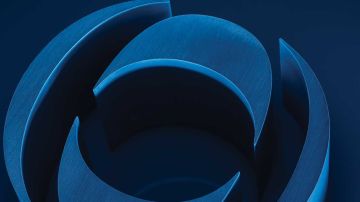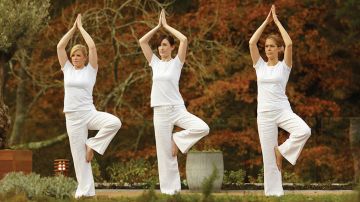By James Cracknell
James Cracknell earned his place in history when he won two Olympic Gold medals, in Sydney 2000 and Athens 2004 in the coxless fours rowing team. He also holds six World Championship gold medals for rowing. Since 2004 he has undertaken all manner of challenges, including the Marathon des Sables across the Sahara Desert in 2010.
My honest response to “What’s winning the Olympics really like?” always appears to leave the recipient looking slightly short changed. Judge for yourself; firstly despite setbacks I never doubted I’d win a gold medal and secondly the confidence that winning has given me in setting and achieving targets in other areas of life has been invaluable.
Admittedly, stating that you’re going to win the Olympics indicates a certain level of self-confidence but whatever you aim for without constructing a robust to get there, it’s never going to happen. Building a staircase from your current level to one that will enable a championship winning performance has given me the belief that if you plot out a route then anything is possible.
I realised those answers aren’t that emotional and racing in front of 100,000 people is a phenomenal experience but I can also relate to the final scene of Rocky 3. Apollo Creed and Rocky Balboa with a win each from their previous bouts fight in an empty gym just so they can know who the best really is. I appreciate that’s not the most “classy” analogy but for me it’s more about the personal satisfaction rather than public attention.
When I left school I went to row at the same club as Steve Redgrave (who already had a couple of Olympic Golds in his locker) figuring if I could beat him once a month, increase that to once a week and ultimately every day I’d prove I had the talent to win at the Games. The big fella also needed some persuading, he’d coached me in the build up to the under 18 World Championships. During the first training session I capsized so didn’t think it was the best time to tell him that in ten years time we’d be racing at the Olympics together.
That scenario still wasn’t looking likely seven years later due to an unhelpful setback. I’d been selected for the 1992 Barcelona Olympics but broke my shoulder playing a game of rugby. I was subsequently offered travelling reserve but unlike a substitute in football once the competition starts you can’t exactly be parachuted into the boat if it’s not going to plan. So I chose not to go, on the one hand I had a fun summer, on the other I lost my funding so had to combine training with a job as I prepared for the 1996 Atlanta Olympics.
The difference between being a full-time athlete and combining work with training is not the volume of training but the available time to let the body rest and recover. I went to the Atlanta Games and caught tonsillitis (probably due to a suppressed immune system) on the day of the opening ceremony so spent the Olympics in quarantine. Those were the second Games I’d been selected for but I’d yet to make the start line.
1996 was a terrible Olympics for Team GB, we won one gold medal and that was Messrs Redgrave and Pinsent. Aside from throwing down the gauntlet testing anyone’s shooting skills who saw him in a boat again, Steve announced that he was going to do a coxless four at the Sydney Olympics. Even my elementary mathematical skills worked out they needed another two people. The selection process is objective rather than subjective, rather than a case of seeing who fit best alongside Wayne Rooney in attack. If I performed in all the selection criteria despite being an ‘unlucky’ athlete in the past it would be impossible for me to be left out. The criteria included speed tests on the rowing machines, weights in the gym, racing in boats on your own from which you’d get put in a pair with someone of similar speed and then the top two pairs would make up the four.
Our four that raced at the 2000 Sydney Olympics took to the water for the first time in April 1997. Our coach said “There’s one race you will be judged on that is September 23rd 2000 at 10.30am. To guarantee winning, your worst has to better than anyone else’s best.”
That was the mantra that we trained with viewing every race we won as though we’d lost, forcing us to keep progressing. We didn’t have rules believing in personal responsibility. If you couldn’t trust someone to look after themselves away from training then you wouldn’t trust them halfway through the Olympic Final when your body is screaming at you to stop.
We won in Sydney and Steve just about managed to hold it together on the podium. When we got back to the boatshed our coach said “That wasn’t very good” and asked to score the race out of ten. The highest of which was six, if we’re honest we hadn’t elevated our worst race to be good enough to win but by setting tough standards our average was.
I wasn’t sure if I was going to carry on for the Athens Olympics. Our coach detected as much and came up to me at Sydney Airport and in his unsubtle manner simply said “Anyone can win once, real champions do it again.” So that was me signed up for another four years.
As Steve Redgrave had finally hung up the lycra baby grow, Matt Pinsent and I raced in a pair. We were successful for a couple of years winning two World Championships and breaking the world record in the process of claiming the second. It was at this point we disobeyed our golden rule and viewed a win as a win. We’d set a new level that our competition believed was possible but we didn’t progress during the long winter training, consequently we got out backsides handed to us the following year. I like to think that if I’d trained well and raced well but still lost I’d accept the opposition were better but it was not having given ourselves the best chance of winning that was unacceptable.
Usain Bolt with a 9.69s showed the other sprinters what was possible in the 100m at the Beijing Olympics. The following year he won the World Championships with a 9.58s, if he hadn’t improved America’s Tyson Gay would have beaten him as claimed silver with a 9.69s.
Back to life on the water, after being defeated at the 2003 World Championships our coach felt that our best was good enough to win but we hadn’t proved our worst or even our average performance was. So Matt and I were moved back into a coxless four only three months before the 2004 Athens Olympics and with six weeks until the Games we had to make a crew change due to injury so the Olympic heat would be our first race together.
We had a limited period to learn to trust each other and not use the injury induced reshuffle as a reason to lower our expectation. To ensure we got every bit of speed possible out of the boat we created an environment of total honesty where critical comments were encouraged and acted upon with no tit for tat grudges. Matt and I had probably become too focused just on winning so made sure we put our heads up, appreciated and used the scale of the Olympics to raise our performance.
On the day of the Olympic Final we believed our best was good enough but as we hadn’t raced together before couldn’t be sure. If we’d listened to those who imposed a ceiling on our potential performance we’d never have won and as we snuck home by 0.08s there wasn’t much margin for error.
Away from sport I’ve learnt about the danger of imposed ceilings. I was knocked off my bike by a fuel truck in the States a year ago and if I’d accepted the ‘experts’ projected level of recovery that’s where I’d have ended up. But by believing I’d get back to being as I was before I gave myself the best chance of getting there.
So if I’ve learnt anything in my rowing career and subsequent challenges such as the Marathon des Sables it is: always have a clear plan, make sure your worst is better than their best, treat a win as a loss and don’t let anyone impose a ceiling on your potential.















